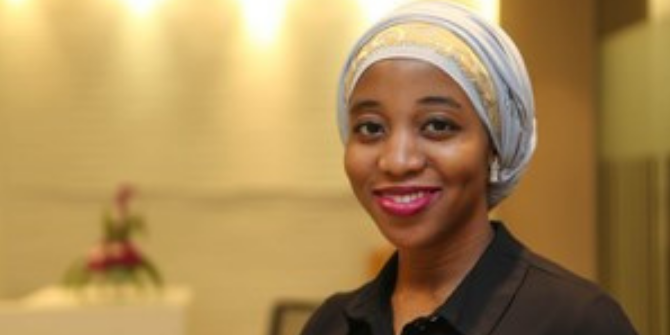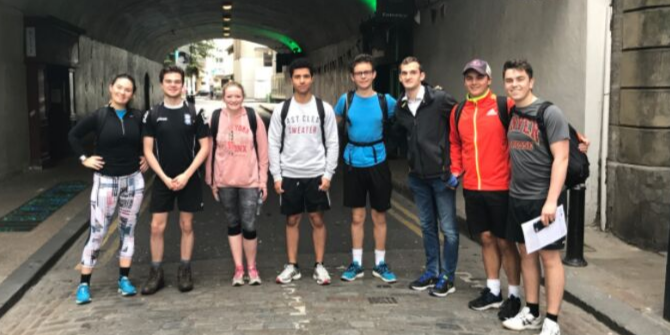In Lent Term we welcomed a range of Corporate Responsibility (CR) and sustainability specialists (including LSE alumni) onto campus to talk about their career paths, what their day-to-day jobs involve, and what the future holds for people interested in CR as a career.
Thanks to Isabella from Sancroft, Yogesh from TCS, Lisa from AIM, Stephanie from the JP Morgan Foundation, and Charlotte from Tesco for sharing their insights – for those of you unable to attend the panel we thought you might be interested in hearing their top tips.
CR at the present time
The last three decades, and the last 10 years in particular, have seen a proliferation of roles incorporating elements of CR across a range of business areas and teams. Old dichotomies of private bad and public good have given way to a widespread recognition that corporations can be a force for good. Yogesh Chauhan of TCS put forward the view that CR, as we know it, is on the wane and that at some point in the future it won’t exist as a discipline. The power base is shifting with the agenda now more about empowering, embedding and shared values with approaches like Michael Porter’s ‘Created Shared Value’ leading the way. A role in CR should be about getting companies at both a corporate and a grass roots level to take responsibility and imbuing this across the organisation.
Panellist insights
So where is this difference taking place and what can you do? Our panellists were from a range of different backgrounds and interests and shared these insights into their specialisms and routes in.
Sustainable investment
This is an area that’s moved from the margins towards something that’s incorporated into a wider spread of investment roles. This might be in areas like green bonds to mitigate climate change, eco asset management and sustainable investment. Whilst there’s an emphasis on sustainability, roles in this area are fundamentally finance or investment based. Routes in might be via a financial graduate scheme to get industry exposure, or alternatively to take a specialist programme or short course. What’s important is to get practical experience which may be in a smaller company or in a more general finance based role.
Supply chain
The movement of goods and services is a key commercial role where the focus is not only on cost saving, but also on how to manage different aspects of the supply chain process to reduce environmental impact and ensure human costs are mitigated through various audit based and due diligence systems to assess the end-to-end supply chain risk. Charlotte, our speaker from Tesco, explained that supply chain is not a distinct function but sits within the commercial team and among other things involves influencing buying decisions and ensuring decisions are in line with corporate principles (eg. mitigating climate change) and legislation such as the Modern Slavery Act.
Foundations and Trusts
Many large private sector organisations have foundations (Bill and Melinda Gates is probably the most well known) that award money for projects in line with that organisation’s social principles. Stephanie from the JP Morgan Foundation highlighted how their emphasis is on local economic development – whether that be workforce development, financial inclusion, or supporting SMEs. At Tesco their focus is on supporting activities related to their business: Diabetes UK, the British Heart Foundation, and food waste and collection charities.
CR consultancy
The focus here is really on measurement and impact. It’s not only about having an interest in sustainability or business ethics but also having a commercial and entrepreneurial outlook and being able to talk the language of business and to put a value on things. As a consultant you need to find metrics that speak to the client whilst recognising that not everything can be measured using a quantitative value. It’s important not to forget the qualitative impact. Previous experience across both the NGO/development and private sector is also valued.
Career tips
- Go for coffee (fair trade of course!) and talk to people to find out what they do. People are helpful and generally want to give back. Do your research and ask questions to make yourself stand out.
- Be persistent – send letters and emails and be tenacious!
- Identify roles that sound interesting. They don’t have to say CR or sustainability in the title.
- Follow your occupational passion but stay true to your beliefs and embrace the notion of sustainability whatever you do.
- Look for ways to demonstrate your enthusiasm for social justice and environmental impact. Volunteer and find causes you are passionate about whether that be in your country or overseas.
- Take time to find out what excites you. Talk to people, volunteer, and don’t worry too much about starting from the bottom if you’re on the right career path.
- Try lots of different things and say yes to new opportunities. See everything as an opportunity to learn.
- Don’t expect a linear career path but look for stepping stones and for each career move to give you more of what you are looking for in the way of impact.
- Think about ways you can be a force for good. CR isn’t a distinct function so look for opportunities to influence from within. Be a maverick, a rebel!





1 Comments